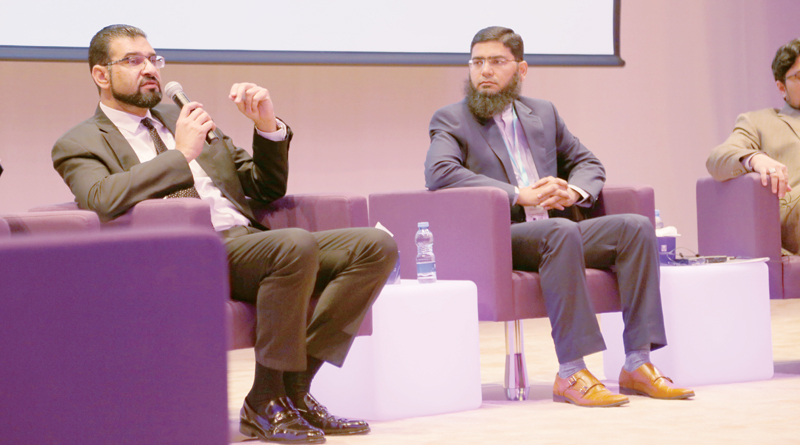

MUSCAT: In an exclusive collaboration between the College of Banking and Financial Studies and Bank Nizwa, the 1st Oman Islamic Finance Youth Forum under the theme ‘The New Age (FinTech) Islamic Finance and the Youth of Oman’ was concluded.
The event highlighted how FinTech can boost and grow the Islamic finance sector, while focusing on the role of Omani youth in leading this trend and the industry now and into the future. Held under the auspices of Tahir bin Salim bin Abdullah al Amri, Executive President, Central Bank of Oman, the forum, saw the participation of a host of industry speakers from Oman and abroad including policy makers, regulators, auditors, academics, scholars, senior corporate professionals and students.
The forum’s programme was crafted carefully to tackle key opportunities and challenges related to FinTech in Islamic Finance and the role of youth. Kicking-off the event was Tahir bin Salim bin Abdullah al Amri, Executive President, Central Bank of Oman.
Other key speakers who shared their insights on the topic of the forum included: Dr Sami al Suwailem, Director General of the Islamic Research and Training Institute (IRTI), the Islamic Development Bank Group, Jeddah, Saudi Arabia, Omar Mustafa Ansari, Secretary General, Accounting and Auditing Organisation for Islamic Financial Institutions (AAOIFI), Bahrain, and Professor Dr Hussain Qadri, Chairman Board of Governance Minhaj University, Higher Education Commission, Pakistan.
Participating in the main panel discussion alongside other industry leaders was Khalid al Kayed, Chief Executive Officer of Bank Nizwa. He said, “FinTech is a huge opportunity for the banking sector in Oman for all players and more so for Islamic finance to be more competitive in the marketplace. Data and technology are converging, so, we are all service providers at the end of the day, and must deliver financial services that are progressive, yet provide value for customers whether retail or corporate. Ensuring that FinTech is streamlined is the key to enable Islamic finance to attract more customers, increase efficiency, but more importantly introduce a proposition for youth to be excited to join the industry and drive its development and growth’’.
Dr Nasser Rashid al Mawali, Dean, College of Banking and Financial Studies said “According to Thomson Reuters, the Islamic finance Industry’s assets are expected to reach $3.9 trillion by 2023. While, the global challenges might slow that growth in 2020, the sector has an abundance of potential in Oman and that’s why we are here today to discuss how the young tech-savvy generation are the main stakeholder who will drive the growth of Islamic finance. We are seeing a very exciting and transformative journey gain momentum by integrating FinTech into Islamic finance, in order to disrupt the market and achieve sustainable growth’’.
In the power session concluding the forum and titled ‘What’s Next: The Fintech Islamic banking & Finance as the Brand of Oman: Key Prescriptions for the Industry and Future personnel’, one of the key speakers within this session was Prof Dr Humayon Dar, Chairman, Cambridge, IFA, UK who commented, “FinTech acts as an enabler of growth and booster of competitiveness for Islamic Finance. You have to remain relevant in the marketplace, while ensuring you have a valid set of regulations and Sharia governance practices in place. What we lack in terms of global unification of these practices, each market must over-compensate for with its own set of rules and regulations. He went on to add, “Governments play a paramount role in clearly communicating their strategies, and objectives for the Islamic finance sector to grow within their borders and that will have a ripple effect across borders. Today, the discussion about youth was of most importance as FinTech in Islamic finance is a very attractive proposition whether for the future experts of the industry or consumers looking to tap into this opportunity’’.
Oman Observer is now on the WhatsApp channel. Click here



